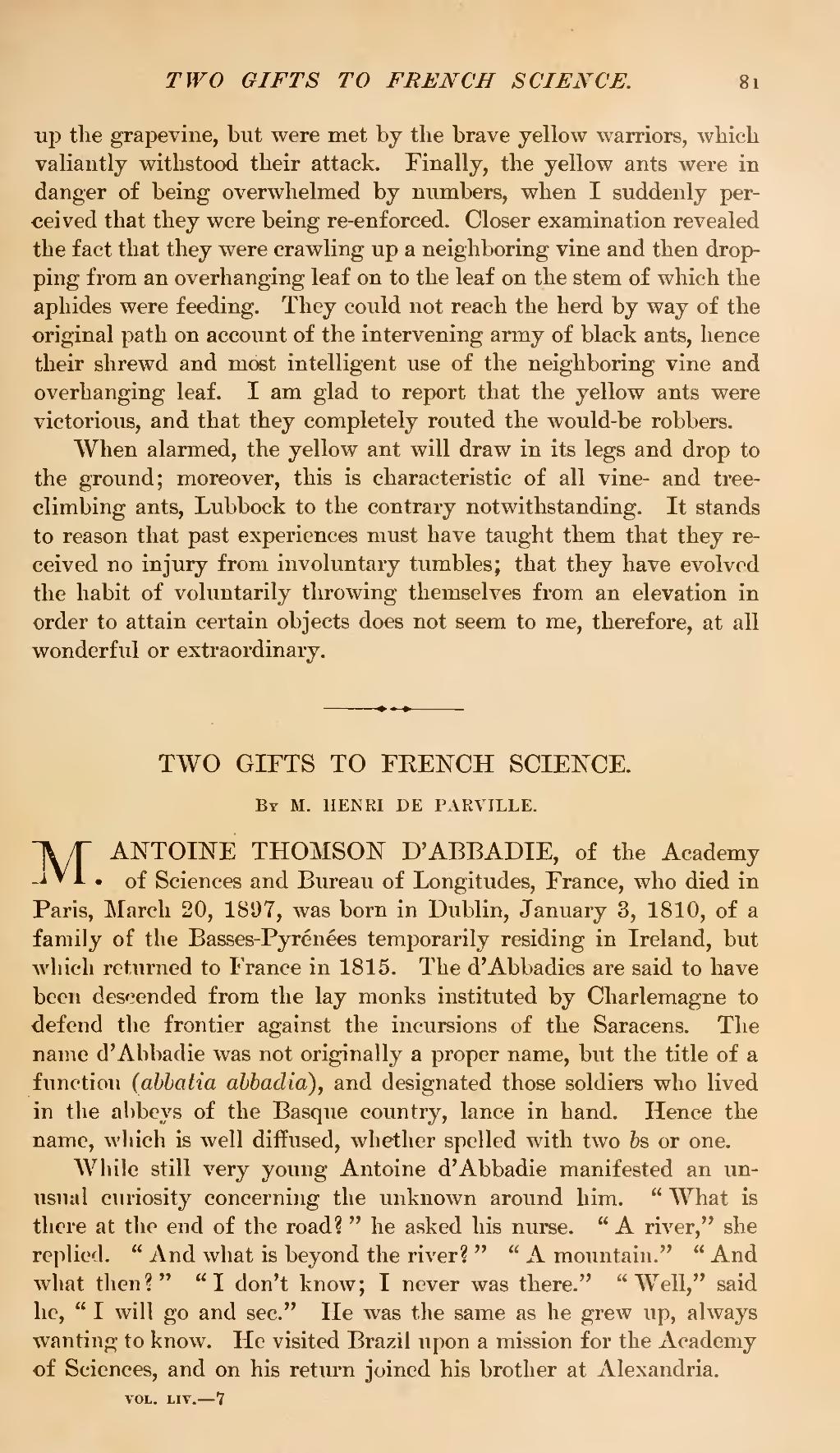up the grapevine, but were met by the brave yellow warriors, which valiantly withstood their attack. Finally, the yellow ants were in danger of being overwhelmed by numbers, when I suddenly perceived that they were being re-enforced. Closer examination revealed the fact that they were crawling up a neighboring vine and then dropping from an overhanging leaf on to the leaf on the stem of which the aphides were feeding. They could not reach the herd by way of the original path on account of the intervening army of black ants, hence their shrewd and most intelligent use of the neighboring vine and overhanging leaf. I am glad to report that the yellow ants were victorious, and that they completely routed the would-be robbers.
When alarmed, the yellow ant will draw in its legs and drop to the ground; moreover, this is characteristic of all vine-and tree climbing ants, Lubbock to the contrary notwithstanding. It stands to reason that past experiences must have taught them that they received no injury from involuntary tumbles; that they have evolved the habit of voluntarily throwing themselves from an elevation in order to attain certain objects does not seem to me, therefore, at all wonderful or extraordinary.
| TWO GIFTS TO FRENCH SCIENCE. |
By M. HENRI DE PARVILLE.
M. ANTOINE THOMSON D'ABBADIE, of the Academy of Sciences and Bureau of Longitudes, France, who died in Paris, March 20, 1897, was born in Dublin, January 3, 1810, of a family of the Basses-Pyrénées temporarily residing in Ireland, but which returned to France in 1815. The d'Abbadies are said to have been descended from the lay monks instituted by Charlemagne to defend the frontier against the incursions of the Saracens. The name d'Abbadie was not originally a proper name, but the title of a function (abbatia abbadia), and designated those soldiers who lived in the abbeys of the Basque country, lance in hand. Hence the name, which is well diffused, whether spelled with two bs or one.
While still very young Antoine d'Abbadie manifested an unusual curiosity concerning the unknown around him. "What is there at the end of the road?" he asked his nurse. "A river," she replied. "And what is beyond the river?" "A mountain." "And what then?" "I don't know; I never was there." "Well," said he, "I will go and see." He was the same as he grew up, always wanting to know. He visited Brazil upon a mission for the Academy of Sciences, and on his return joined his brother at Alexandria.

